Intercultural Crosstalk
People Who Have Come to Japan, The Country of Their Roots① -The Country Where I Was Born and Raised-
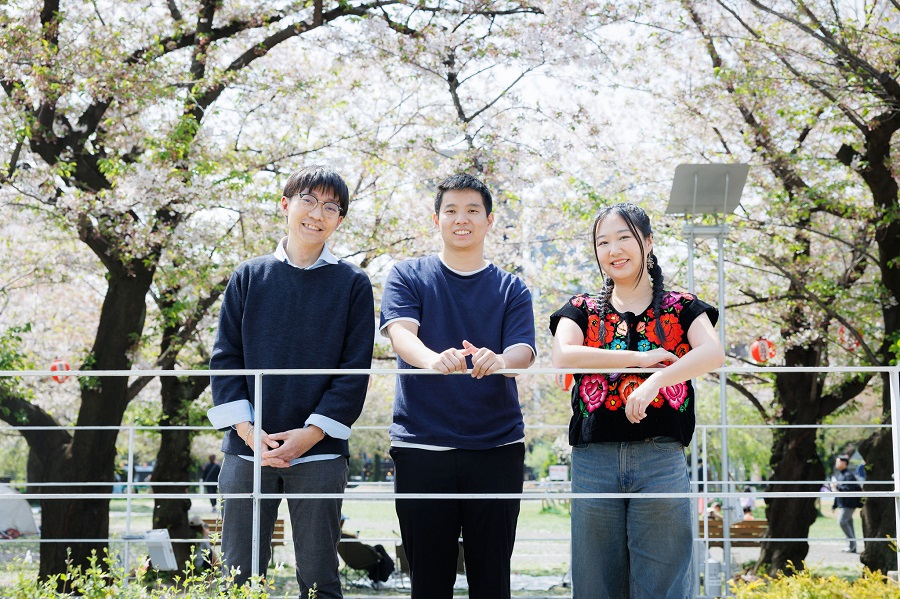
Profiles
Shinya (from South Korea)
- Years of residence in Japan
- 7 years
- Native language
- Japanese and English
- Favorite Japanese words
- Ichigo ichie (once in a lifetime)
- Favorite places in Tokyo
- The entire eastern side of the city and along the Sumida River
- Favorite food
- Dishes made with potatoes
- Hobbies
- Reading and watching movies
- Where would you like to go if you had a week off?
- Germany
Yuki (from Argentina)
- Years of residence in Japan
- 19 years (returned to Argentina once, then came back to Japan 8 years ago)
- Native language
- Spanish and Japanese
- Favorite Japanese words
- "Shoshin wasuru bekarazu" (Don't forget your first steps, or where you come from)
- Favorite places in Tokyo
- Sumida River
- Favorite food
- Sushi
- Hobbies
- Traveling
- Where would you like to go if you had a week off?
- Yoron Island
Saya (from Mexico)
- Years of residence in Japan
- 13 years
- Native language
- Spanish and Japanese
- Favorite Japanese words
- "hito(people/person)" (after learning the origin of the kanji)
- Favorite places in Tokyo
- Omotesando
- Favorite food
- Ramen
- Hobbies
- Traveling
- Where would you like to go if you had a week off?
- Palau
Round 1: The Country Where I Was Born and Raised
We will be presenting a three-part series of round table discussions with "people who have come to Japan, the country of their roots."
There are many people living overseas who have roots in Japan. In this series, we will hear from 3 people who were born and raised overseas but chose to come to Japan, the country of their roots, of their own volition. They will talk about their reasons for making that decision, the countries where they grew up, and their thoughts on their identity.
Please Tell Us About the Country Where You Have Roots Other Than Japan and the Environment in Which You Grew Up
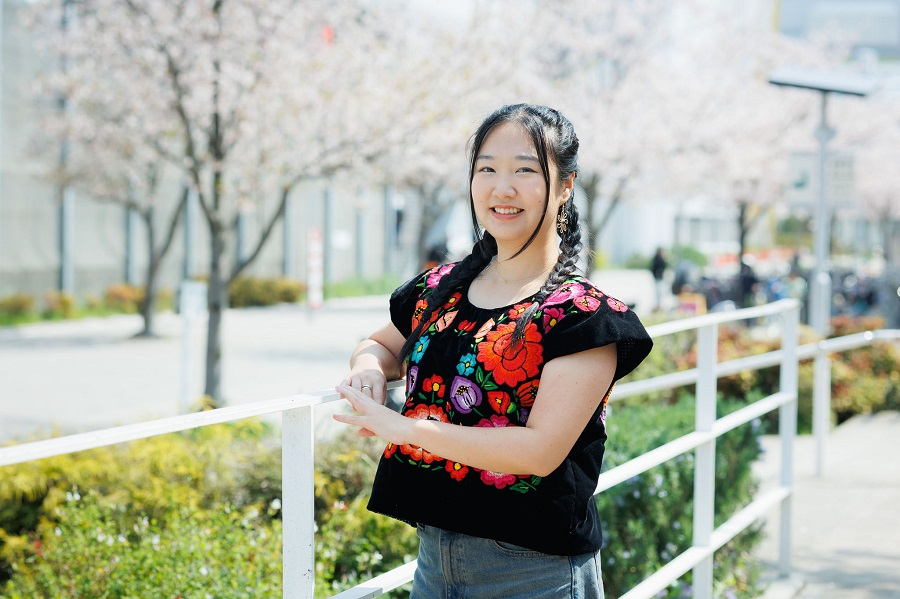
I have roots in Argentina. I lived in Japan until the 5th grade, then moved to Argentina with my family and have been back and forth several times. In Argentina, I lived in the suburbs of Buenos Aires.
I grew up in the city of Cuernavaca in Mexico. It's about an hour's drive from Mexico City. It used to be a quiet place, but it's become quite urbanized now.
My mother is from South Korea and my father is from Japan. I was born in South Korea and moved to Hong Kong when I was 2 years old. I lived in Hong Kong with my family until I went to university in the United States.
What Made You Decide to Come to Japan?
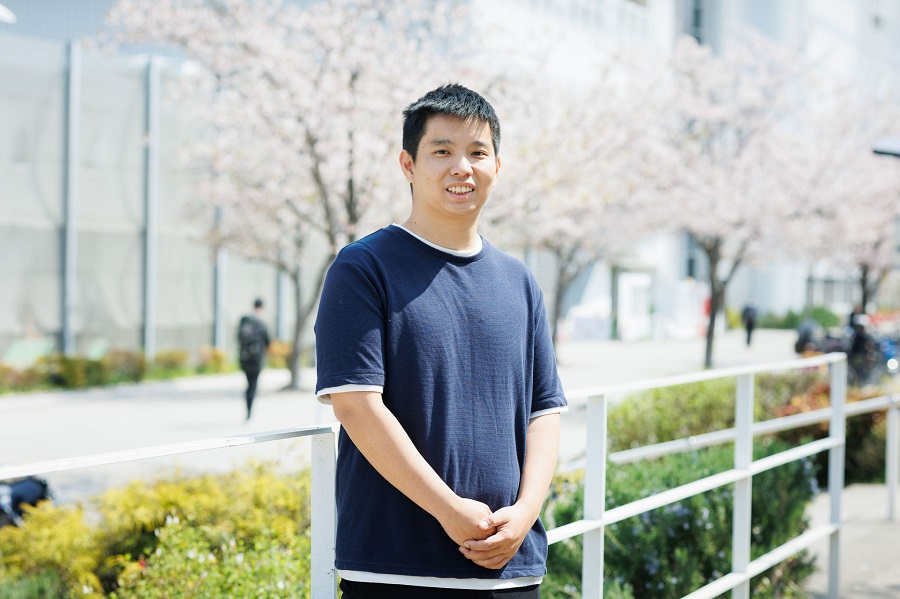
Actually, I never really thought about coming to Japan. Before graduating from high school in Mexico, I was thinking about what to study next when I came across a magazine published by the Japan-Mexico Association (an organization promoting exchange between Japan and Mexico) that mentioned scholarships available for studying in Japan from organizations like the Nippon Foundation. I had visited Japan before to visit my grandmother, but I had never considered living here. However, I was fortunate enough to receive a scholarship and came to Japan in 2012 to attend a specialized school for fashion design.
I also came to Japan after graduating from high school, but I didn't have a strong desire to go to Japan. I had the opportunity to study abroad in Japan during high school, and I ended up going to university here. There were many people from Argentina at the university, and my father had also attended the same university, so I decided to go there.
I hadn't lived in Japan since I was in 5th grade, so my knowledge of Japan was limited to what I had learned at that time. I had also forgotten a lot of Japanese.
Unlike the two of them, I came to Japan for work.
While studying educational policy at a graduate school in the US, I compared education systems in various countries and felt that although Japanese students are considered to have high academic abilities, this does not necessarily translate into happiness.
I attended a Japanese school in Hong Kong for 6 years of elementary school and 1 year of middle school, where I had a very enjoyable school life. Since I understood Japanese culture and the education system, I began to wonder what the issues might be and decided that I wanted to be involved in Japanese education, which led me to come to Japan.
How Did You Feel About Education of Japan?
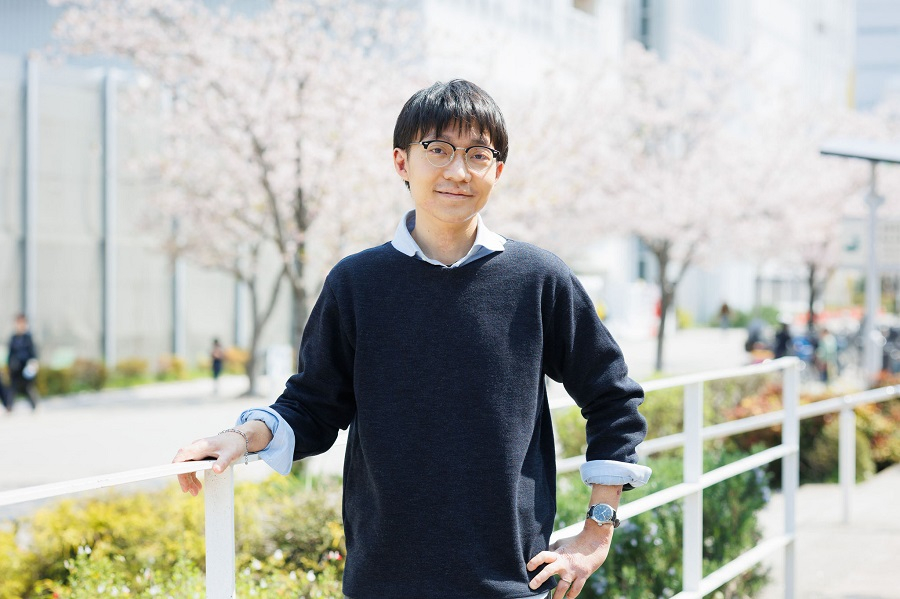
To be honest, I enjoyed my time at university, and everyone around me seemed to be having fun. However, when it came to job hunting season, my impression was completely different, which I found strange. Everyone seemed to be struggling or even depressed.
I went to a specialized school, but I felt that in Japan there is a lot of pressure regarding career paths, such as going to a "good high school" or a "good university." When I was in Mexico, before summer vacation, everyone would talk about where to go and have fun, but in Japan, the topics of conversation are mostly about homework.
The educational environment in South America is the complete opposite of Japan. In Argentina, high school is relatively easy, but graduating from university is very difficult, and it's rare for someone to graduate in 4 years. Many people spend several years in university, studying while taking their time to figure out what they want to do.
This is also my area of expertise, but I think education is based on the ideal image of what a person should be in each country, and the curriculum is designed to achieve that ideal. I feel that Japan has a culture where relationships with society, or what is commonly referred to as "the world," are very important. Therefore, rather than focusing on what students want to do, there are many opportunities to compare society and the individual, and I think it can be difficult for students to pursue what they really want to do.
At What Age Did You Start Thinking About Your Roots and Identity?
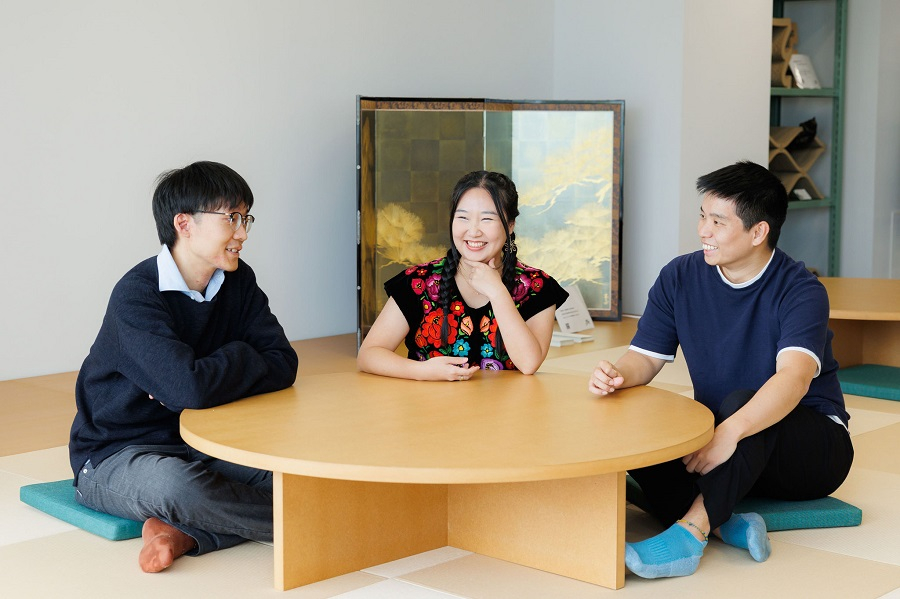
When I was a child living in Japan, I spoke only Japanese. When I moved to Argentina in the 5th grade, I gradually felt my way of thinking change as I lived in a Spanish-speaking environment. I guess you could say that I went from thinking like a Japanese person to thinking like both a Japanese and an Argentinean. When I was in Japan, I spent my days off playing with friends rather than with my family. But in Argentina, weekends are always spent with family. In Japan, I hardly ever saw my relatives, but in Argentina, I kept meeting relatives I had never met before. At my first welcome party, there were about 30 relatives, and I thought, "These are all cousins of cousins I've never met before!" (laughs).
I started thinking about my roots after returning to Japan for university. Maybe it was because I was treated as a foreigner for the first time in Japan.
I understand that.
I also lived in Mexico normally, and I was actually quite good at Japanese, even winning praise in speech contests. But when I came to Japan, I had trouble reading proper nouns, which was quite difficult. Every time I asked a station attendant how to read the station name, I felt like they were thinking, "You're an adult and you can't read this?" which made me feel awkward.
Now that I don't get recognized as a foreigner anymore, it's all good (laughs).
In my case, I had been struggling with my roots even before coming to Japan. From kindergarten through high school, I attended European-style schools. At home, I was Asian; outside, I was Latin; and at school, I was European. Living in these three cultures, I began to feel somewhat alienated.
However, during high school, I participated in a summer camp for Japanese-Mexican people, and that experience significantly brightened my personality. I think meeting people with a similar background was a major factor.
Now, I feel comfortable embracing both my Mexican roots and Japanese culture, embracing this dual identity.
I lived for a long time in countries that were different from those of my roots, Hong Kong and the United States. In Hong Kong, I was seen as a "foreigner from a neighboring country," and in the United States, I was seen as an "Asian foreigner." Being a foreigner was at the core of my identity. I always lived my life conscious of how I was perceived by those around me in the countries where I lived at the time.
Although Japanese was the common language at home, I attended a Korean church with my mother since I was a child. There, I learned Korean and belonged to a Korean community. So, even though I had Japanese nationality, I always took it for granted that I had connections to other cultures, including Korea and the countries where I lived. Therefore, I have always naturally thought that nationality is only one part of what makes up my identity, and that there are many other elements as well.
In the first installment, we heard about the backgrounds of 3 participants who grew up in different environments and came to Japan for various reasons.
In the second installment, we explore the theme of "Me and Japan," delving deeper into the impressions the 3 participants formed about Japan, its culture, and its people after arriving in the country.
── Continued in the Following Issues
